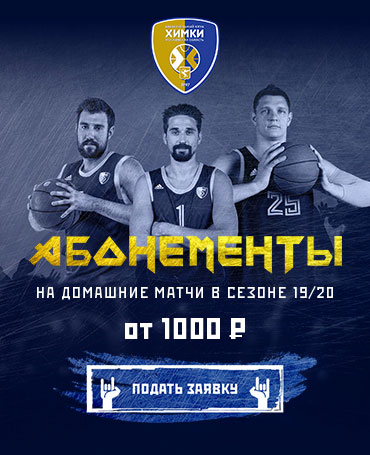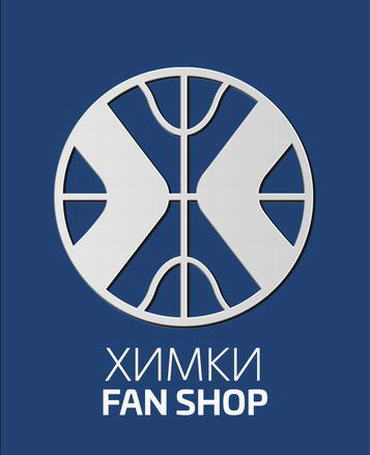There usually aren’t impossible feats 6 february 2007
Wednesday will witness three rematch games in the quarter finals of the Russian Cup. One of the teams in the Final Four has already been defined by default — given the Dynamo SPb dissolution – affording Dynamo Moscow Region an in. Meanwhile, Khimki will host the match against Dynamo Moscow.
In the Russian Cup games, up until this season, Khimki and Dynamo MR faced off but once, in the 2004/05 season, playing a consolation final match, after losing in the first F4 games. In the current tournament the clubs will, for the first time, will play for the right to go on to the next round in the battle for the trophy. Now, fate has taken last season’s trophy winner and current contender for this season’s of ULEB Cup to the quarter finals. This was not by a stroke of luck, however, but by the distribution of the Russian Championship results, where Dynamo Moscow played successfully as they had “in Europe.”
Despite the fact that the first match in the quarter finals Khimki as visiting team met with defeat, the team’s Head Coach Kestutis KEMZURA, considers that the team and its fan Guard are enough to boost their chances in any battle against any opponent. However, no team is exempt of mishaps, but the club has set six goals for itself, and will not lower their weapons under any circumstance.
— It's indispensable for the players to feel the security of their own strengths. They are all professionals ready to serve their team. This can be done in 35 minutes of game time, as much as during a brief cut. With such an ample bench, the matter of how much game time each should have on court, of course, doesn’t make it easy for the coach to decide. We all have the same objective, win each game and I think we will gain mutual understanding. When they all realize that the result is what matters, then that is when a team is born. If the players lean on one another, this will boost the team as a whole.
Meet the opponent:
The Basketball Club Dynamo (Moscow) is a part of the Physical-Sport Association of Russia. Dynamo Moscow, founded in 1923, was the first winner of the USSR Club Championships (1937, up until then the tournaments throughout the USSR were played between cities), and also won the gold in 1948. Two-time winner of the silver medal for the USSR Championship (1944, ‘90), nine-time bronze medal champ for the USSR Championship (including the last one played URSS-CEI ’92). Dynamo was also two-time finalist in the Union Cup, and three-time silver medalist in the Russian Championship (1995, ‘96, 2005), and of the bronze in 2004.
During last season Dynamo won their first continental victory with the ULEB Cup trophy. Until then the club had qualified twice in the semifinals of the European cups (Cup of Cups in 1991, European Cup in 1996). Dynamo Moscow players have always participated in the National Team’s roster, not only for the USSR but also the Russian Federation.
During the preseason, Coach Dusan Ivkovic invited a series of new players -though renowned in the world of basketball — to the club. Naturally, to qualify for the “next level” – the Euro League — and the desire to up their game in the Russian tournaments demanded a more powerful team: from Spain’s TAU the North American Travis Hansen, and returning from the NBA Sergey Monia (Portland team). In lieu of Hanno Mottola, three players took the front line: the Serbian Crvena Zvezda’s Miroslav Raicevic, Italian Roma’s Nigerian Obinna Ekezie, and Ural Great’s Andrei Trushkin, and Eddie Gill filled the guard position, after Ruben Douglas, Mire Chatman and George Tsintsadze took their leave.
MBC Dynamo Moscow
4 | Bojan Popovic | Guard | 1983 | 190 |
5 | Andrei Ivanov | Forward | 1984 | 197 |
6 | Travis Hansen | Guard | 1978 | 197 |
7 | Dmitry Khvostov | Guard | 1989 | 190 |
8 | Eddie Gill | Guard | 1978 | 183 |
10 | Sergey Bykov | Guard | 1983 | 190 |
11 | Sergey Monia | Forward | 1983 | 202 |
12 | Lazaros Papadopulos | Center | 1981 | 210 |
13 | Andrei Trushkin | Center | 1981 | 207 |
14 | Dmitry Domani | Guard | 1974 | 200 |
15 | Antonis Fotsis | Forward | 1981 | 209 |
17 | Yuri Vasiliev | Center | 1981 | 207 |
19 | Obinna Ekezie | Center | 1983 | 208 |
21 | Grigori Shukhovtsev | Center | 1983 | 211 |
25 | Sergey Romanov | Forward | 1984 | 200 |
31 | Miroslav Raicevic | Forward | 1981 | 208 |
Assistant coaches: Vangelis Agelou, Andrei Kornev, Roman Safronov



